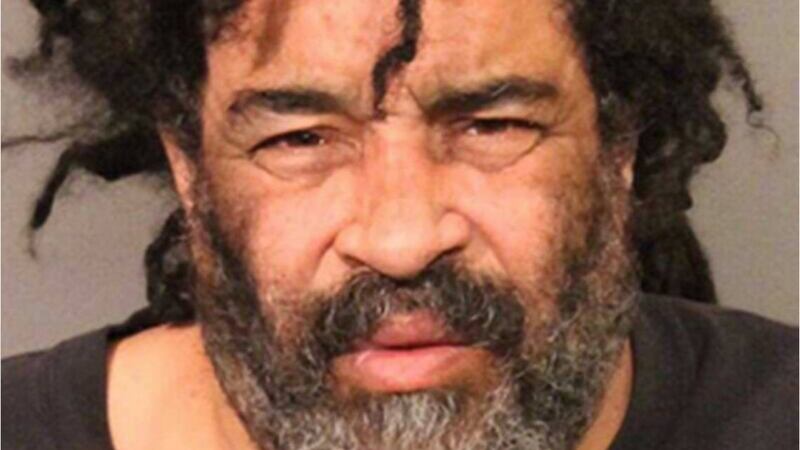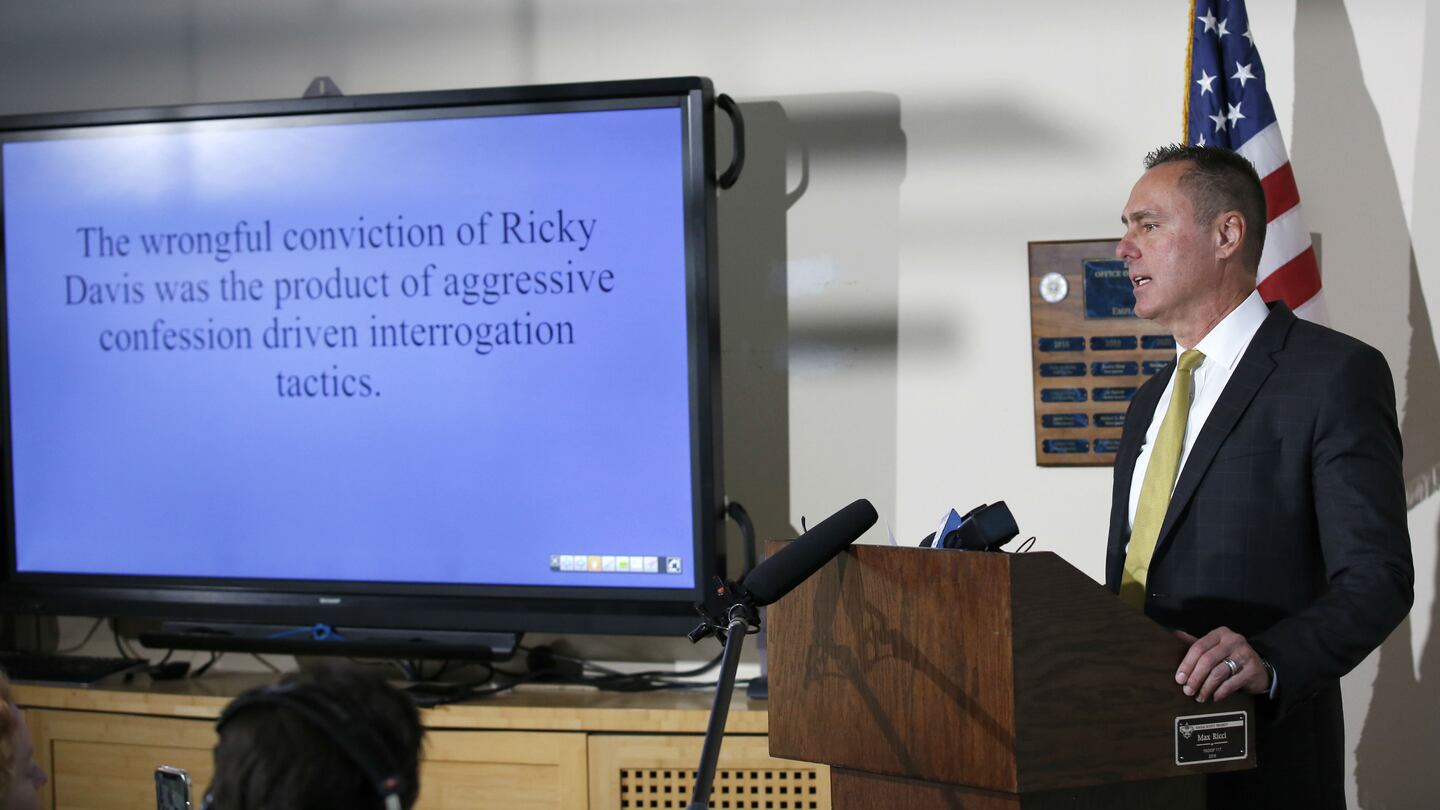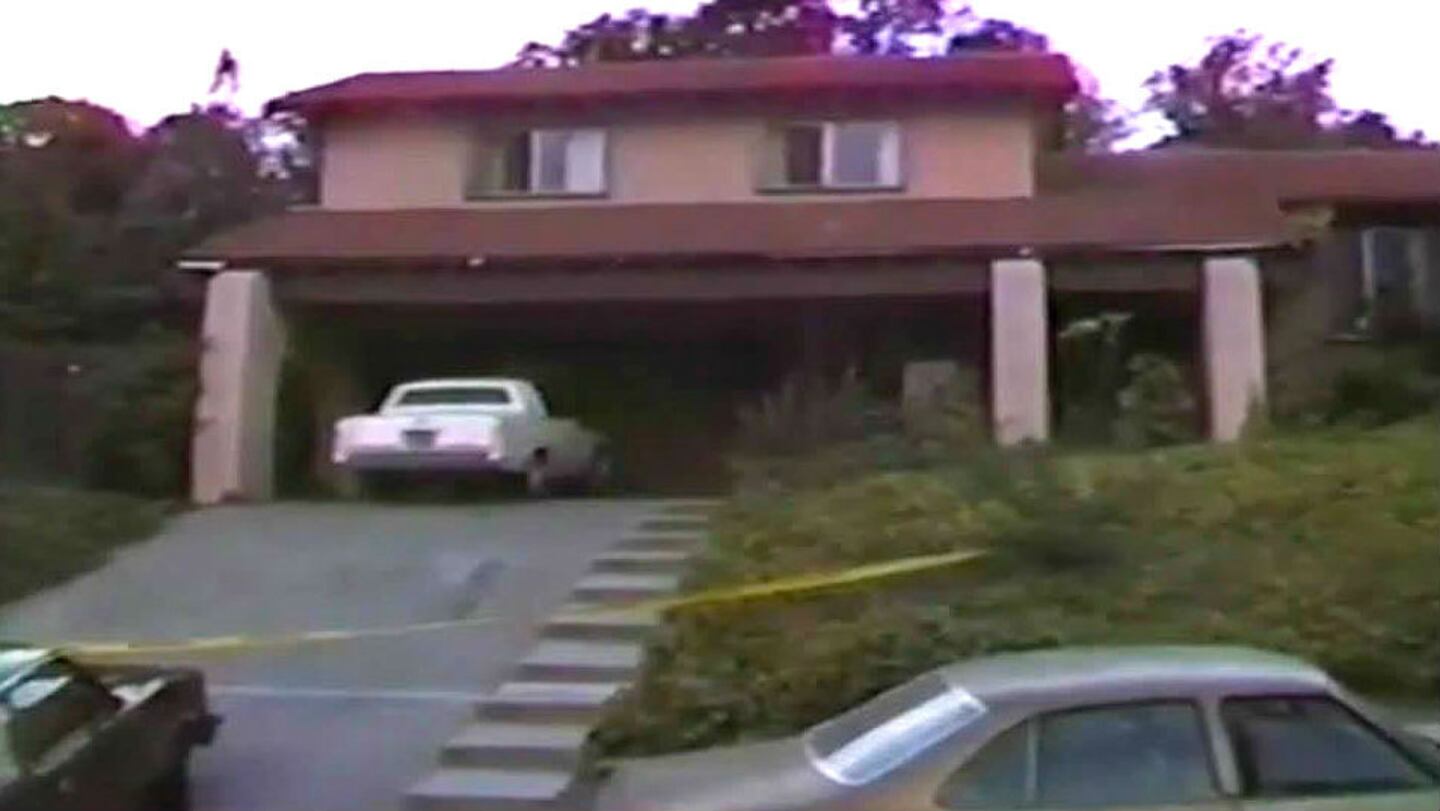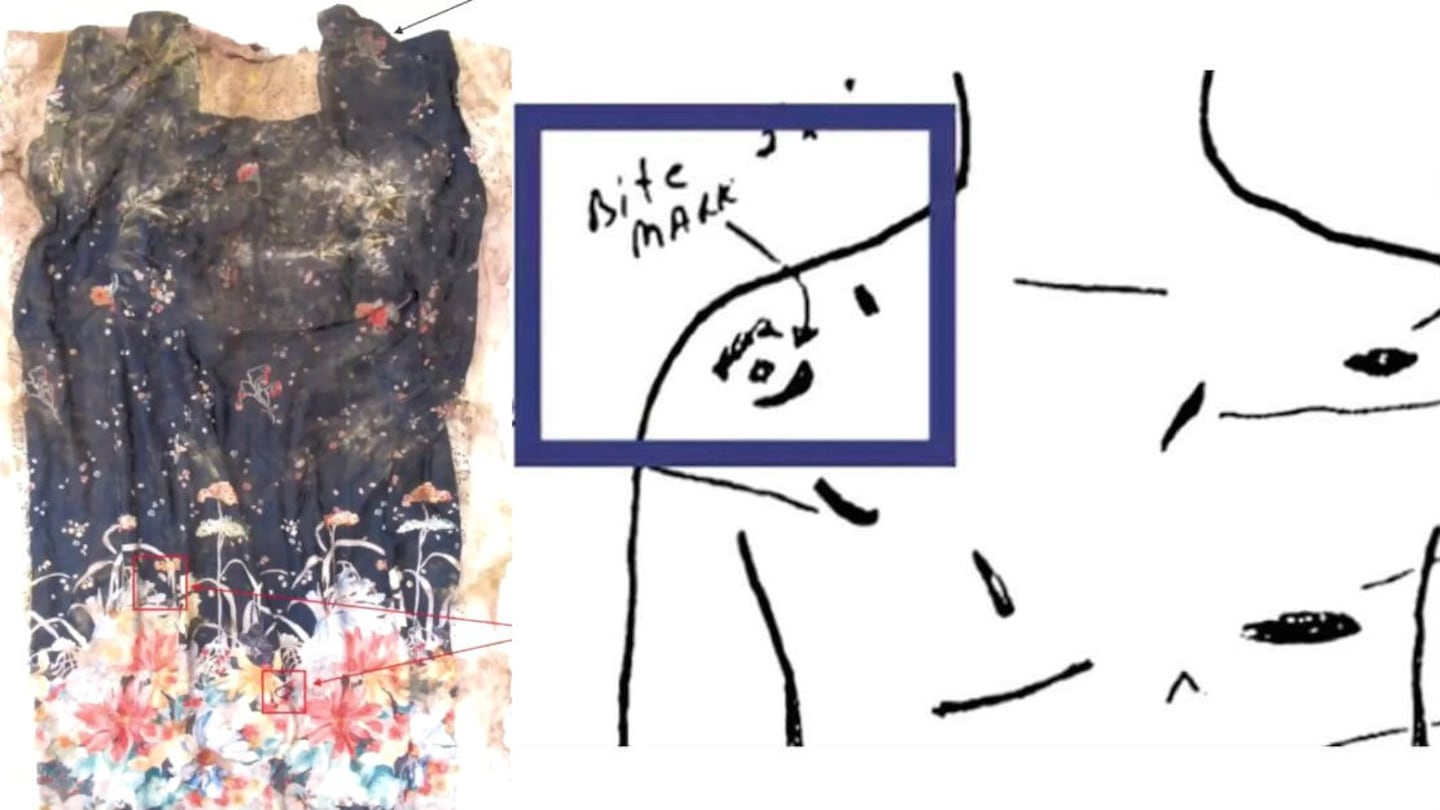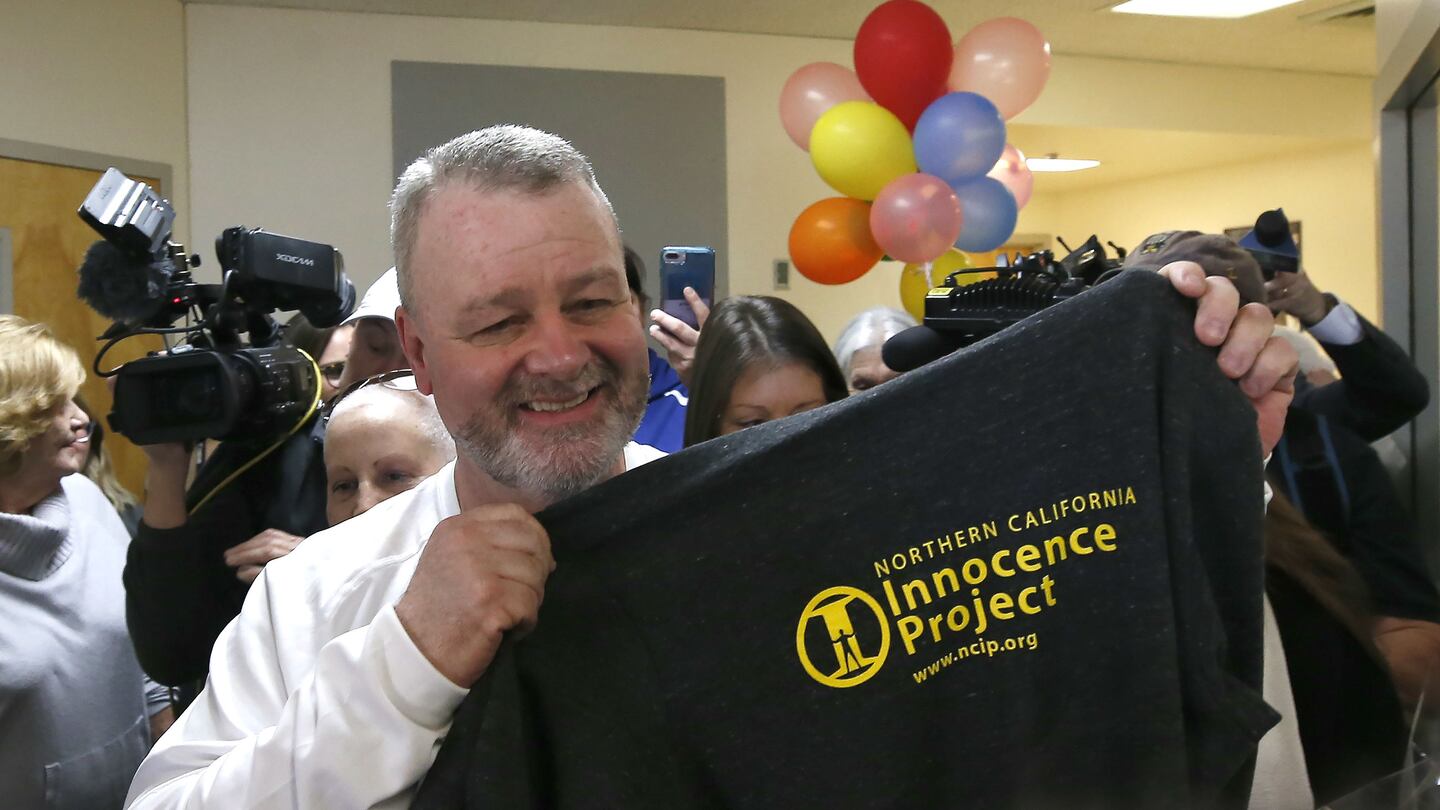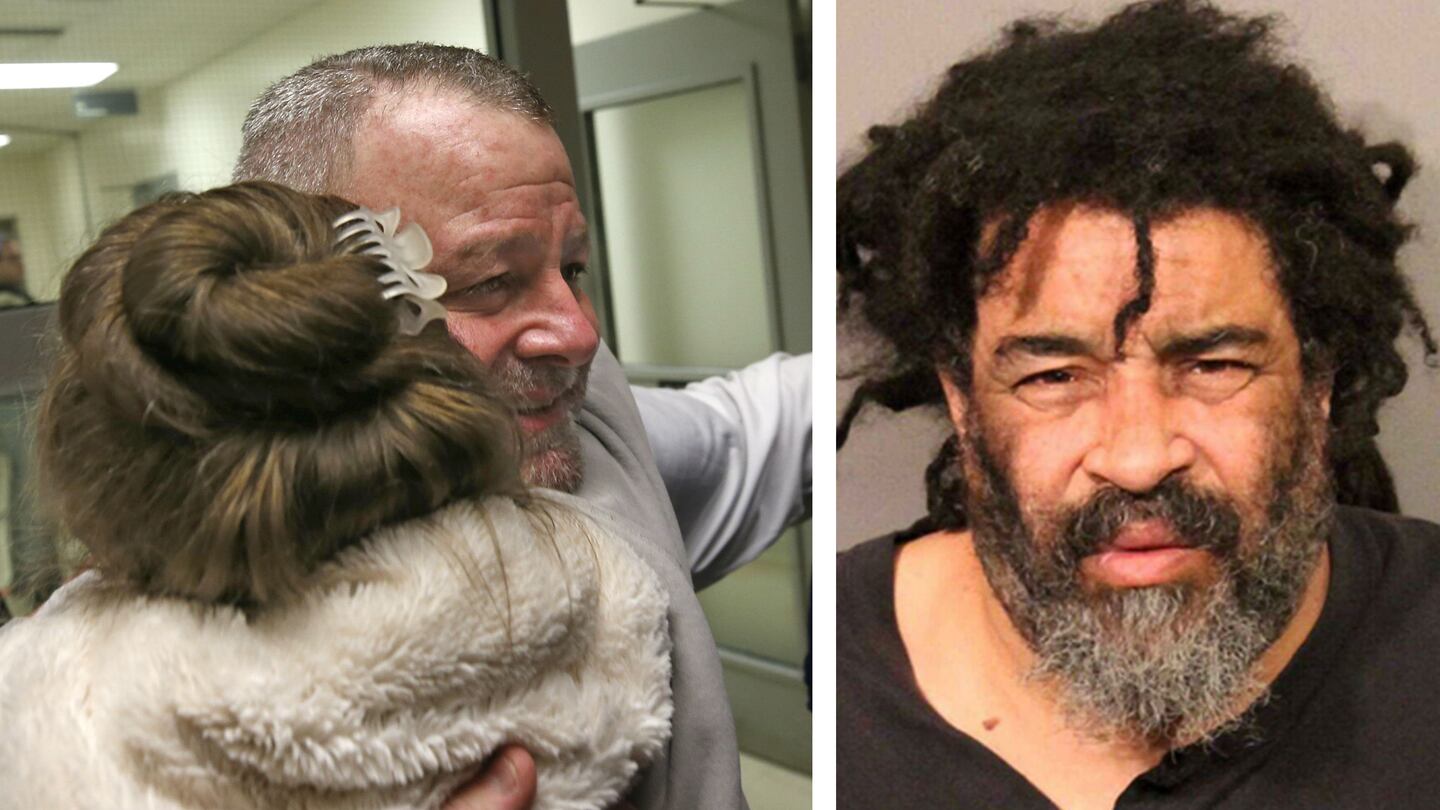PLACERVILLE, Calif. — Ricky Leo Davis, who was convicted nearly 15 years ago of the murder of a newspaper columnist, has become the first California inmate to be exonerated by genetic genealogy, the same technology that identified the alleged Golden State Killer in April 2018.
Davis, 54, was released Thursday from the El Dorado County Jail in Placerville after the same DNA evidence that proved he did not kill his housemate, Jane Anker Hylton, in July 1985, pointed to another man as the killer. Hylton, a 54-year-old mother and columnist for the Foothills Times, was stabbed 29 times and suffered a bite mark on her left shoulder, according to authorities.
Saliva from that bite mark would ultimately solve the case.
Davis, who was convicted in the 20-year-old case in August 2005, is the second inmate in U.S. history to be freed using genetic genealogy, according to the San Francisco Chronicle.
“Simply put, Ricky Leo Davis did not kill Jane Hylton,” El Dorado County District Attorney Vern Pierson said.
Pierson announced the latest development in Davis’ case during a news conference Thursday. He also announced the arrest of the new suspect, who the Sacramento Bee identified as 51-year-old Michael Eric Green. CBS Sacramento reported Green was arrested outside his Roseville home, where neighbors said he’d spent much of his life living with and caring for his parents.
Green was one of three young men Hylton’s then-13-year-old daughter told investigators she’d met in a park the night her mother was slain. She identified the boys by first names only: Calvin, Michael and a third boy named either Steve or Brian.
Green, who was a juvenile when Hylton was killed, was arrested Tuesday in Placer County. He was booked Friday into the El Dorado County Jail on a murder charge, according to jail records.
Pierson said the other two boys Hylton’s daughter named the morning her mother’s body was discovered have also been tracked down. One has since died and the other is cooperating with the investigation.
The prosecutor said the new developments in the murder case were “two of the most dramatic extremes” he’d experienced in his 28 years on the job.
“On one hand, a person, Ricky Davis, was falsely accused, brought to trial, convicted and has spent the last 15-some years in custody for a crime that I can tell you, in all confidence, he did not commit,” the prosecutor said. “It’s not a matter of we don’t have sufficient evidence to move forward on it or to proceed to a new trial.
“In all confidence, he did not commit this crime. He is not responsible.”
A brutal crime
Davis, who was 20 when Hylton, 54, was killed, called police shortly after midnight July 7, 1985, after he and his girlfriend at the time, Connie Dahl, found Hylton’s body in the home they had just begun sharing, according to the Northern California Innocence Project. The home, located in El Dorado Hills, belonged to Davis’ grandmother, who the day before had allowed Hylton, who was her employee, and Hylton’s daughter to move in because the columnist was having marital trouble.
“Davis and Dahl told detectives they had gone to a party the night before and returned home at 3:30 a.m., where they found Hylton’s daughter waiting outside,” the organization’s synopsis of Davis’ case reads. “She told them that she had gone out with a group of boys that night and was afraid her mother would be upset with her for being out too late. The three entered the house together.
“Davis saw blood in the hallway outside the master bedroom and found Hylton’s body on the bed. Davis and Dahl immediately called 911 to report the crime.”
Hylton’s estranged husband was cleared of the crime and the case eventually went cold.
Fourteen years later, in November 1999, cold case detectives with the El Dorado Sheriff’s Office reopened the investigation and brought in Dahl for questioning.
“The detectives interrogated Dahl four times over the next 18 months using techniques known to increase the chances of false confessions,” the case synopsis says. “Dahl ultimately changed her story for police and implicated Davis as the killer. She also implicated herself in the crime, telling the police that she bit the victim during the attack.”
In addition, Dahl claimed Hylton’s daughter helped the couple move her mother’s body.
Based nearly entirely on Dahl’s new claims, Davis was convicted in 2005 and sentenced to 16 years to life in prison, the synopsis states. Dahl, meanwhile, received a sentence of a year in county jail for her purported role in the crime.
The Northern California Innocence Project became involved in Davis’ case in 2006, opening its own investigation into Hylton’s murder. With the cooperation of Pierson’s office, Davis’ attorneys sought DNA testing on evidence from the crime scene, including the victim’s nightgown and scrapings taken from under her fingernails.
The testing found a man’s DNA on the nightgown in the area of the bite mark, the synopsis says. DNA found under the victim’s fingernails matched the sample from nightgown.
“The test results excluded Davis, Dahl and Hylton’s daughter as the sources of the DNA,” according to the case synopsis. “The unknown male DNA profile found on the nightgown indicated that Dahl did not bite the victim, contrary to her testimony at trial.”
Innocence Project attorneys went to court with the new evidence, successfully arguing in 2018 that the evidence would have likely resulted in a different outcome at Davis’ trial. Davis’ conviction was overturned on April 15, 2019, but prosecutors initially intended to retry him for Hylton’s slaying.
Instead, Pierson’s office teamed up with the Sacramento County Crime Lab to use genetic genealogy to trace the unknown DNA to potential family members who had submitted their own genetic profiles to public websites.
The process led detectives and prosecutors to Green.
‘Aggressive confession-driven interrogation tactics’
Pierson on Thursday highlighted the interrogation tactics he said led to Davis’ arrest and conviction more than two decades after Hylton was killed. In a court hearing at which Davis was officially set free, the prosecutor described Dahl’s questioning by two now-retired investigators as “aggressive, confession-driven interrogation.”
In a snippet of Dahl’s interrogation transcript shared by Pierson’s office via video, a detective urged her to be the first to talk in the case.
“So the train is coming through right now and, in my experience in law enforcement, the first one to jump on the bandwagon always gets the, always gets the easiest ride,” the unnamed detective said.
“Right,” Dahl responded.
Watch a video about the Jane Hylton case below. Editor’s note: The video contains crime scene footage that may be too graphic for some viewers.
The detective then brought up the bite mark on the victim’s left shoulder.
“…whether Ricky brings it on you or you bring it on somebody else, have you ever been the type of person that, during a fight, you know, whether you scratch, hit, punch, have you ever bitten someone? Do you ever bite?” the detective asked.
“I’ve bitten some,” Dahl responded. “I’ve bitten a couple of times. Yeah.”
The next snippet shows Dahl saying she didn’t know if she’d bitten Hylton.
“I don’t know if … I don’t believe that I have it in me to help do this,” she said.
Eventually, Dahl confessed to biting Hylton and said Davis killed her.
Dahl died in 2014, the Bee reported.
Watch Thursday’s news conference announcing Ricky Davis’ exoneration below.
According to the newspaper, which covered Davis’ hearing Thursday, Pierson told El Dorado Superior Court Judge Kenneth J. Melekian that the DNA evidence exonerating Davis led his office to go over the murder case again as though it had never been solved instead of trying to prove Davis was the killer.
When Melekian turned toward Davis a short time later, he declared him “factually innocent.”
Davis and his attorneys were emotional following the hearing, the Bee reported. One Innocence Project lawyer, Melissa O’Connell, thanked Davis for his “tremendous strength and resilience, and never giving up hope,” the newspaper said.
Davis, who emerged from the jail shortly after 3 p.m., walked into a crowd of about two dozen family members and Innocence Project staff. They hugged him and welcomed him back into the outside world.
“God bless the Innocence Project,” Davis said as he held up a T-shirt from the organization.
Both his own lawyers and Pierson said Davis will likely be financially compensated for the time he wrongfully spent in prison. According to The Associated Press, that compensation, under California law, would equal $750,000, or $140 for each day he spent behind bars.
Pierson talked after the fact about meeting face-to-face with Davis a few nights before his release.
“It’s an interesting conversation, to meet with someone as a prosecutor and realize that this person has, in fact, been falsely accused, convicted and incarcerated,” Pierson said. “He said a number of things. He knew that we had made a commitment that we would follow up on it.”
He said Davis referenced the amount of time it had taken to free him since the DNA evidence first indicated his innocence in 2014.
“I had to tell him, in all candor, if this investigation had moved forward years ago, the technology did not exist, the techniques did not exist that were employed in this case to unwind it the way that we were able to do it now,” Pierson said. “I wish it had occurred sooner, that we could have gotten him out of custody sooner. The practical reality is it’s only been the past year and a half, two years that genetic genealogy to identify someone in these circumstances has been in existence.”
O’Connell said she and her colleagues believed in Davis’ innocence since they took on the case, both because of his own claims and what they believe were coercive interrogation methods. She said it was amazing how composed Davis remained in court Thursday.
“I asked him, ‘Did you ever think this day would come?’ and he said, ‘Yes.’” O’Connell said. “He never gave up hope, and he trusted that the system would undo this wrongful conviction.”
Watch Pierson and O’Connell discuss Thursday’s developments below, courtesy of the Bee.
© 2020 Cox Media Group
